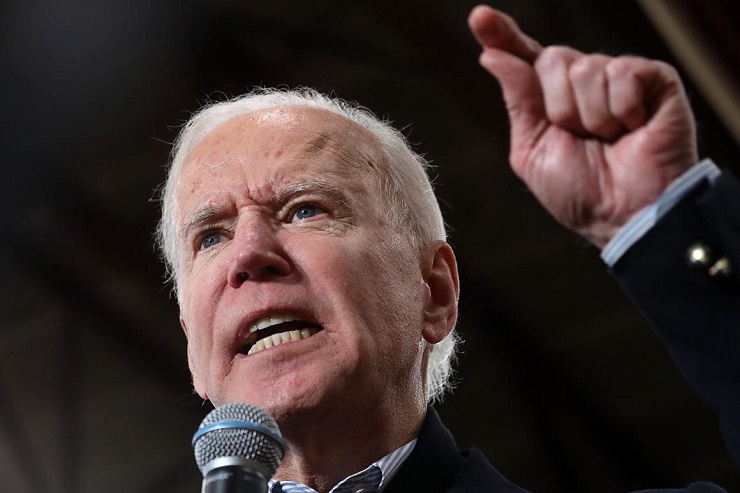In his first major foreign policy speech, the newly elected US president made it clear that the era of US’ traditional interventionist and confrontationist policy is going to take over Donald Trump’s “America First”, a controversial policy that emphasized economic nationalism and a reduced US involvement in conflicts. In his last speech as president, Trump took a lot of pride in the fact that he is the first president in last many decades who completed his tenure without starting a new war. Biden’s approach, however, shows that US interventionism and the bid to re-establish US supremacy are going to be the new cornerstones of US global politics. Anti-China and anti-Russia elements within the US establishment see Trump’s “America First” as one primary reason that allowed US rivals to take advantage of US political retreat and project themselves in many crucial regions including the Middle East and Europe, which were under US exclusive influence until a few years ago. Therefore, the foremost goal of the Joe Biden administration is going to be reclaiming the lost US supremacy. As it stands, the new administration is already projecting this policy without mincing any words, calling it a ‘great reset.’
Biden’s speech was unambiguous when he addressed Russia, saying,
“I made it clear to President Putin, in a manner very different from my predecessor, that the days of the United States rolling over in the face of Russia’s aggressive actions — interfering with our elections, cyberattacks, poisoning its citizens — are over. We will not hesitate to raise the cost on Russia and defend our vital interests and our people. And we will be more effective in dealing with Russia when we work in coalition and coordination with other like-minded partners.”
Outlining his confrontation with China, Biden said,
“And we’ll also take on directly the challenges posed by our prosperity, security, and democratic values by our most serious competitor, China. We’ll confront China’s economic abuses; counter its aggressive, coercive action; to push back on China’s attack on human rights, intellectual property, and global governance.”
Of course, these “warnings” are a part of Biden’s policy to re-build American supremacy. As he said,
“It’s going to take time to rebuild what has been so badly damaged. But that’s precisely what we’re going to do.”
The Joe Biden administration, as it stands, is being facilitated by the presence of hawks in the broader US-led defense establishment including NATO. A recent paper written by an anonymous author for the NATO-funded think-tank, The Atlantic Council, said that “The single most important challenge facing the United States and the democratic world in the twenty-first century is the rise of an increasingly authoritarian and aggressive China under Xi Jinping.” What the US needs to do is, the author argues, compel China’s “ruling elites to conclude that it is in China’s best interests to continue operating within the US-led liberal international order rather than building a rival order, and that it is in the Chinese Communist Party’s best interests to not attempt to expand China’s borders or export its political model beyond China’s shores.”
This policy stands in complete contrast to what China’s Xi had only recently said in his World Economic Forum speech. To quote him, “To build small circles or start a new Cold War, to reject, threaten or intimidate others, to willfully impose decoupling, supply disruptions or sanctions, and to create isolation or estrangement will only push the world into division and even confrontation,” Xi stressed, adding that, “We cannot tackle common challenges in a divided world, and confrontation will lead us to a dead end.”
Russia’s Putin in his address to the same forum outlined an identical approach, signifying how a de-facto Russia-China alliance exists with a primary aim to counter US unilateralism and supremacy.
Putin clearly foresaw Biden’s approach when he said, “We can expect the nature of practical actions to also become more aggressive, including pressure on the countries that do not agree with a role of obedient controlled satellites, use of trade barriers, illegitimate sanctions and restrictions in the financial, technological and cyber spheres. Such a game with no rules critically increases the risk of unilateral use of military force.”
Pre-empting Biden’s aggressive drive towards US unilateralism, Putin pointed out, “… the era linked with attempts to build a centralised and unipolar world order has ended. To be honest, this era did not even begin. A mere attempt was made in this direction, but this, too, is now history. The essence of this monopoly ran counter to our civilisation’s cultural and historical diversity.”
While the win-win and multipolar vision given by Russia-China shows their resolve to resist US unilateralism and build a more inclusive global political system, it also underscores the fact that the centre of global political and economic gravity has significantly shifted to Asia. An increasing number of countries are subscribing to the logic of win-win, rejecting the zero-sum competition that hawks in the US espouse, cherish and aim to impose on the whole world.
A “war of narratives”, with win-win and zero-sum competition as its two faces, has therefore begun with full force.
And, in this war, the US is not just resisting China and Russia; it is primarily resisting its own inevitable downfall both internally and externally. The events leading to the virtual occupation of the US Congress by Trump’s supporters signifies how the US democracy, internally divided and deeply polarized between the so-called liberals and white supremacists, is no longer a “role model” for the rest of the world. On the external front, China and Russia signify how a US led global economic system is not the only path to global salvation.
Salman Rafi Sheikh, research-analyst of International Relations and Pakistan’s foreign and domestic affairs, exclusively for the online magazine “New Eastern Outlook”.

